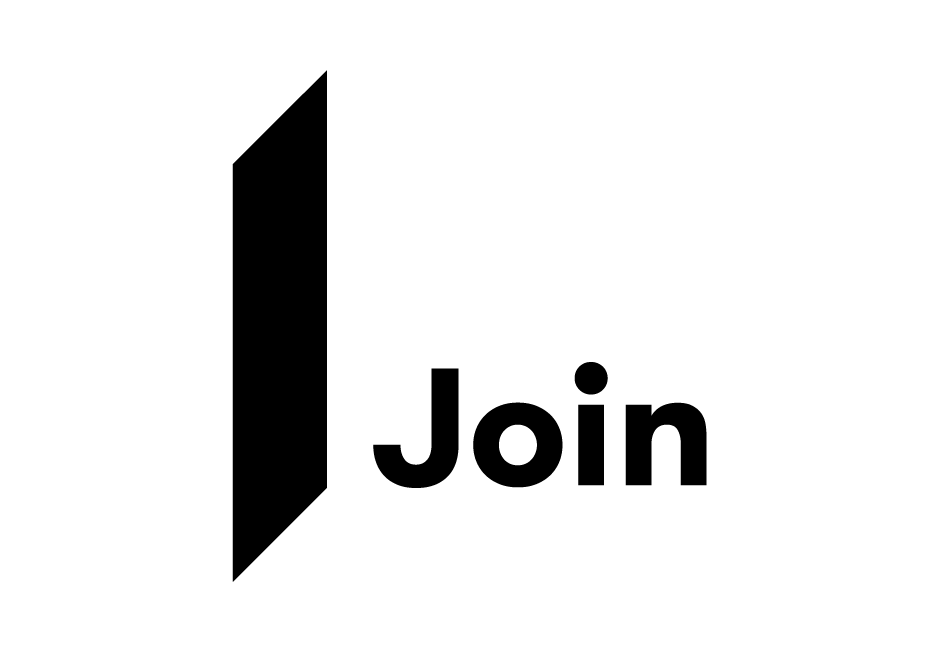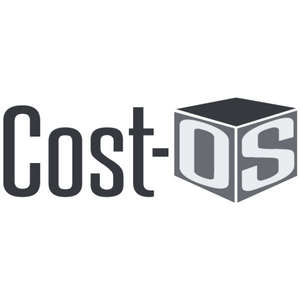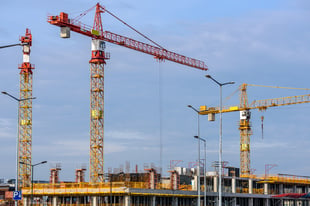Construction Safety Week—Managing Mental Health and Well Being
How often have you heard, “keep your home life at home and your work at work?” And how often have you abided by this rule? We’ve been taught for most of our adult lives that being professional means separating our personal life from our work life, but how realistic is that?
We’re human and life happens… sometimes in a very big way. It is impossible to expect our team and ourselves to be robots without emotions.
The wind is shifting, however, and more and more companies realize that stress and anxiety from both our personal and professional lives takes its toll—affecting performance, production, and even our physical safety and overall health. This is happening even in industries where traditionally the focus has solely been on the physical safety of its workers.
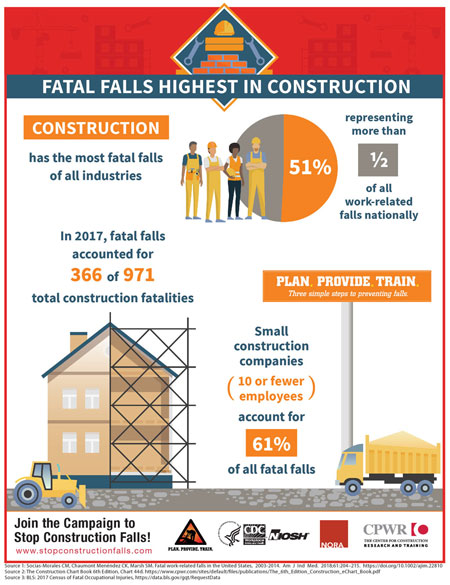 90% of accidents on the construction site are in part due to distractions
90% of accidents on the construction site are in part due to distractions
Real talk—the construction industry isn’t the most touchy-feely, but there are plenty of reasons why it's high time we take the mental well-being of our staff seriously.
What is Mental Health?
Mental health is not just the “absence of a mental illness,” as the National Institute of Mental Health writes, it is “…the overall wellness of how you think, regulate your feelings, and behave.” (Mayo Clinic) According to the Centers for Disease Control and Prevention, 50 percent of Americans require mental health treatment at least once during their lives.
What is a Stigma?
Stigma is when shame, disapproval, and disgrace are attributed to a person that demonstrates a certain quality or qualities.
Mental illness has been stigmatized since the 1700s when those with mental illness were housed in the same asylums as criminals. During this time, primarily in England and France, there was no separation between those with mental health issues and criminals. Both were deemed “idle,” meaning they didn’t work.
Though things culturally and medically have shifted drastically since there, there is still a stigma attached to mental illness.
These stigmas come from a variety of influences in our lives when family, friends, colleagues, religion, beliefs, and/or society, perceive one to act differently than our societal norms.
Mental Health and Stigma Now
Humanitarian efforts in the 1840s were the first steps toward providing better care for those dealing with mental health struggles. Though our solutions toward treating these illnesses have historically been far from perfect, recently our country has seen increased awareness as to how prevalent mental health issues are.
It goes without saying that living through a pandemic has made many of us question our mental well-being more than once. In fact, 4 in 10 adults (up from 1 in 10 in June 2019) reported feeling anxiety or depression, with disturbed sleeping and eating patterns, increased substance abuse, and worsening chronic illnesses.
We’ve been given a double whammy. On top of the fear of or experienced job loss, isolation, and a host of other concerns COVID-19 gave us, pressure to stay on schedule and budget on the job may have many workers feeling extremely overwhelmed and stressed.
Yes, May 3-7 (2021) is Construction Safety Week (a joint effort formed in 2014 by the Construction Industry Safety Initiative (CISI) group and the Incident and Injury Free (IIF) CEO Forum) but May is also Building Safety Month and Mental Health Awareness Month. There is no better time than now to start helping your team—and yourself—to manage stress.
Construction Safety Week and Mental Health Awareness
2020 was the first time Construction Safety Week created a campaign focusing on the mental health and well-being of construction workers, emphasizing the seriousness of stress, anxiety, depression, and other mental health issues in our industry. Stress and mental well-being affect the overall safety of the job. Anyone struggling mentally can become easily distracted, leading to injury.
Not only is the construction industry disproportionate in the number of worker deaths in relation to how many construction employees make up the entire workforce, with the fourth-highest death rate of any industry, the construction industry is also the second-highest industry in suicide rates. (Centers for Disease Control and Prevention)
Leading insurance broker for the construction industry, Willis Towers Watson reports that “57% of construction workers have experienced a mental health issue” during their career. When someone is experiencing an emotional crisis, stress, or anxiety, they often are distracted. Even the safest worksite can’t prevent human distraction and awareness.
When distracted, you lose concentration and focus. You might forget to hook up to your fall protection or in the office, you might miss a few numbers in the estimate. Stress is a factor in up to 80 percent of workplace accidents. In fact, Construction Superintendent reports that 90 percent of accidents on the construction site are in part due to distractions.
 Chronic stress can permanently damage our bodies and lead to heart problems, disrupt our immune system, and has shown to increase our chances of Alzheimer’s.
Chronic stress can permanently damage our bodies and lead to heart problems, disrupt our immune system, and has shown to increase our chances of Alzheimer’s.
What Does Stress Do to Your Body?
Stress isn’t just a psychological experience. Our bodies physically respond to stress. When we feel stress, our bodies react with what is called “fight or flight.” Our ancient ancestors developed the fight or flight response to protect ourselves from a threat. It prepares us to either run or fight.
When we feel stress or fear, our sympathetic nervous system releases the hormones adrenaline and noradrenaline. This causes our heart rate to increase, our breath to quicken, our muscles to tense, and our pupils to dilate. Psychologist Carolyn Fisher, PhD says, “Our fight or flight response can now be activated from psychological or mental stress.” Repeated fight or flight response can permanently damage our bodies and lead to chronic heart problems, disrupt our immune system, and has shown to increase our chances of Alzheimer’s.
What are the Warning Signs of Stress?
The American Institute of Stress reports that nearly half of employees need help managing their stress. It is good practice to know your team and notice signs of stress and anxiety.
- Irritability
- Apathy
- Withdraw
- Fatigue
- Muscle pain
- Stomach issues
Safe construction projects are more productive, experience less worker turnover, and produce less waste. Being safer means you have lower overhead and lower insurance and labor costs providing an attractive bid over the contractor who doesn’t include safety in their estimates.
7 Ways to Help Manage You and Your Employee’s Stress
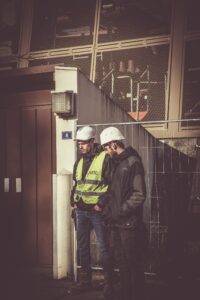 Be available for your team members to reach out for help.
Be available for your team members to reach out for help.
If you haven’t practiced an open-door policy in the past, it may feel a little awkward at first, but start by being approachable and remind your team that they should feel comfortable coming to talk to you. Set an example by being alert, communicative, sympathetic, and positive.
- Add mental health briefs in your safety meetings
- Reinforce positive behavior and remember to tell your crew thank you and that they are doing a good job
- Take your team to lunch or organize a fun activity after work hours
- Provide mental health resources for your team
- Adopt flexibility by giving your team time to spend with their loved ones
- Encourage rest, exercise, and a good diet
- Foster teamwork
- Work with human resources to develop a wellness program
Consider Hybrid Models of Work
If your office is currently working remotely but considering calling everyone back to the office, explore options of letting your teamwork a hybrid model where some remote work is possible. A survey conducted by HR Dive (publication related to Construction Dive) found that almost half of employees reported they would look for another job if their company won’t offer a hybrid option, stating working from home has saved them money, lessened their commute, allowed them to spend more quality time with their families, and gotten more sleep—all things that have significantly cut down stress.
Beck Technology partner, Balfour Beatty’s office employees have been working from home and are currently figuring out how to adopt a flexible working model when administrative positions return to the office. Balfour Beatty’s U.S. Buildings division president, Eric Stenman says they are even exploring ways to rotate people in the field.
There is no way to eliminate stress from your life, and in fact, research has shown that short-live moderate stress can actually be good for us by building resiliency, improving memory and performance, as well as keeping us more alert. However, it is chronic stress, anxiety, and depression that cause long-term ill effects.
The tag line for Construction Safety Week is Be Present. Be Focused. Be Safe. With these tips on how to manage stress, you should be able to help your team manage stress and anxiety better.
If you or anyone you know needs help, call the National Suicide Prevention Lifeline at 1-800-273-8255.

